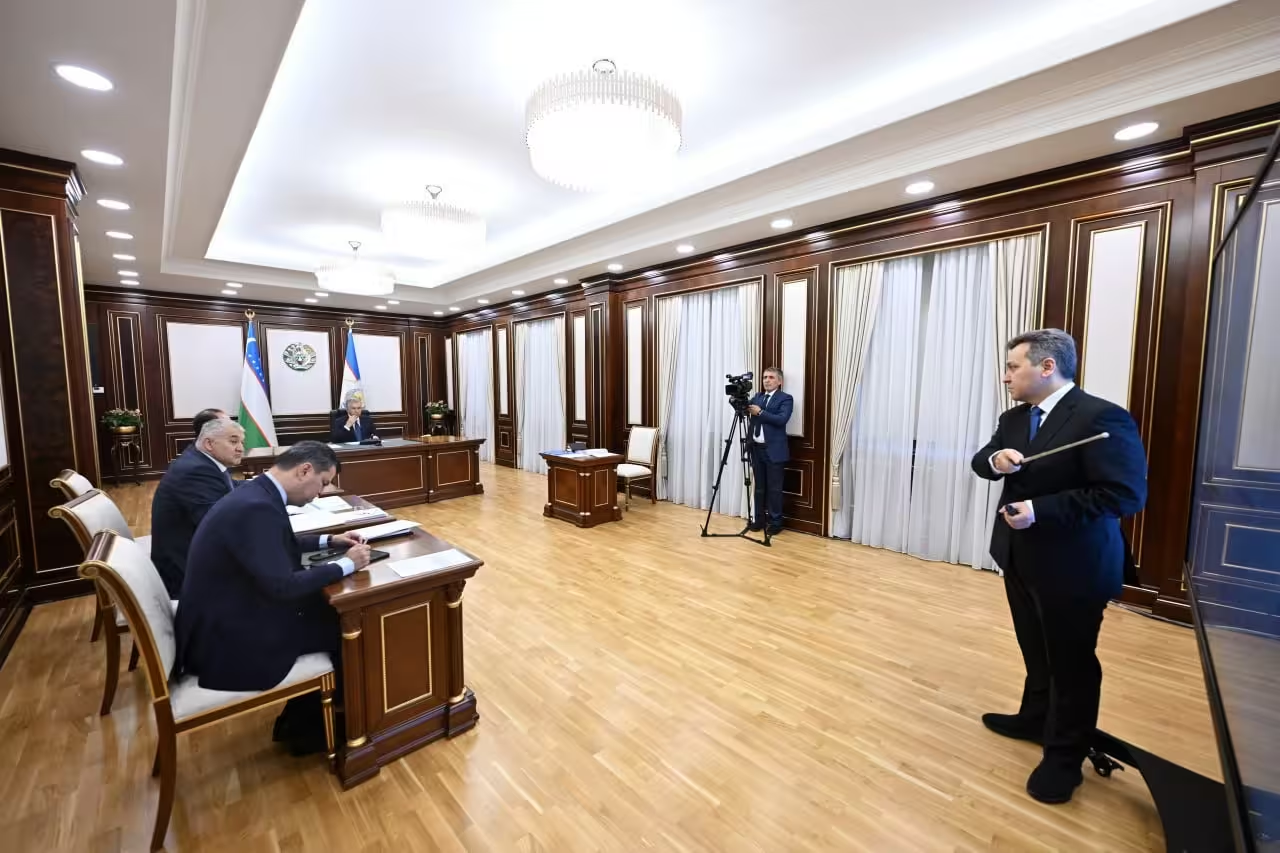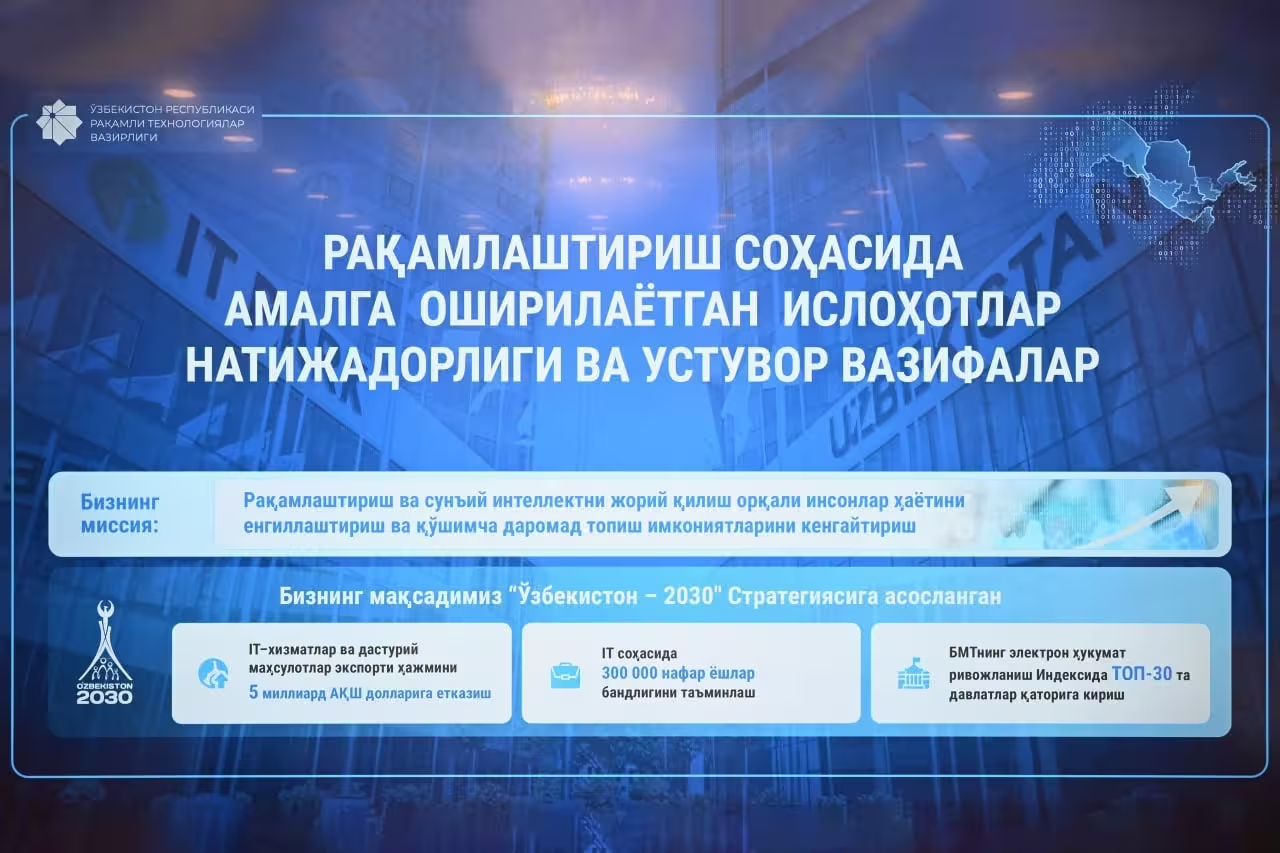Uzbekistan plans to increase the digitization of public services to 70% and expand the volume of IT services to UZS 100 trillion ($7.9bn) in 2026, as part of a broader push to accelerate the country’s digital transformation. President Shavkat Mirziyoyev reviewed these ambitious targets during a presentation on July 1, which outlined upcoming plans in the fields of digital technologies, artificial intelligence, and telecommunications.

Uzbekistan has seen significant progress in its digital sector in recent years. Over 760 public services have already been digitized, with 10mn citizens using digital platforms last year alone. The president emphasized that it is time to move to the next phase of a “Digital Government,” prioritizing digital solutions in education, healthcare, construction, and communal services—sectors most frequently used by the public.
The country’s IT sector continues to grow rapidly. The number of resident companies in IT parks has reached 2,800, including 752 foreign firms. Around 40,000 young professionals are now working in the field, contributing to the sector’s export growth—from $170mn five years ago to nearly $1bn today. Internet speeds have increased sevenfold, and mobile internet usage has grown 4.5 times. In 2024, venture capital investments in Uzbek startups totaled $70mn.
These achievements have earned Uzbekistan global recognition. The country rose 12 places in the Global Startup Index, entering the top 100, and improved by 17 positions in the International Artificial Intelligence Readiness Index—ranking first in Central Asia.

To build on this momentum, the government is working to rise to at least 55th place in the UN’s E-Government Development Index. Several draft policy documents have been prepared to meet this goal.
The presentation also included updates on the implementation of Uzbekistan’s Strategy for the Development of Artificial Intelligence Technologies until 2030, adopted under a presidential resolution in October 2024. The strategy allocates $50mn to strengthen AI infrastructure and includes plans to develop a national AI model and train 1mn specialists.
The Minister of Digital Technologies briefed the president on the progress of these initiatives and highlighted efforts to improve infrastructure.
The head of the state stressed the importance of expanding the digital economy across all regions of the country—not just in Tashkent—by fostering a favorable environment for foreign companies and relocating talent.
Follow Daryo's official Instagram and Twitter pages to keep current on world news.
Comments (0)